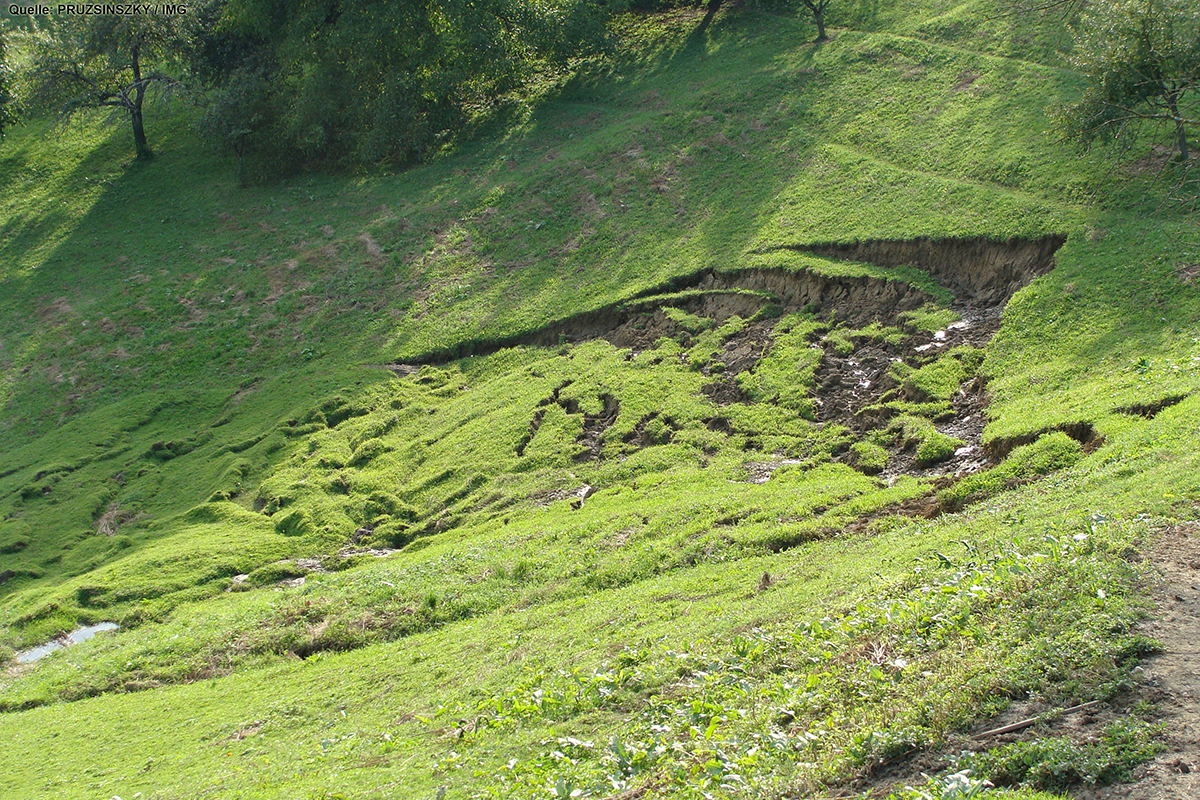People in the Feldbach region of Styria will never forget the early summer of 2009. Unusually prolonged and heavy rainfall triggered around 3000 landslides in the area within a few days, causing enormous damage. An international team of researchers led by the University of Graz used this event as an example to study the influence of climate change and land use on the risk of landslides in the future. "If warming is not slowed down, the risk will increase considerably," says Douglas Maraun, lead author of the study, which has just been published in the journal Communications Earth & Environment.
In their work, the scientists simulated the 2009 event assuming various plausible climate and land-use trends. "The worst-case scenario results from a four-degree temperature increase, and the most favorable development results from limiting warming to 0.5 degrees," Maraun summarizes one finding. The researcher from the Wegener Center at the University of Graz also has some good news: "If it is possible to limit the temperature increase from now on to half a degree - as agreed in the Paris climate goal - the risk of landslides could be kept at the level of today by afforestation of particularly endangered areas".
The study illustrates the interplay of rainfall and soil moisture in a changing climate. "In those scenarios that are the most likely, precipitation intensities increase strongly, while soil moisture does not change or decreases only slightly," Maraun reports. Higher soil moisture favors slope instabilities. The simulations also show that trees could significantly reduce the risk. The protective effect is strongest with mixed-leaf forest, which stabilizes the soil most effectively. As mixed-leaf forests are much more resilient to the expected climatic changes in the region, this result illustrates the co-benefits of proactive land management for adapting forests to climate change and reducing landslide hazards.
Publication
A severe landslide event in the Alpine foreland under possible future climate and land-use changes
Douglas Maraun, Raphael Knevels, Aditya N. Mishra, Heimo Truhetz, Emanuele Bevacqua, Herwig Proske, Giuseppe Zappa, Alexander Brenning, Helene Petschko, Armin Schaer, Philip Leopold and Bryony L. Puxley
Communications Earth & Environment, DOI: 10.1038/s43247-022-00408-7
Exhibition
Results of the study are also presented in an exhibition on display at the Joanneum Natural History Museum in Graz until July 17, 2022.
https://www.museum-joanneum.at/naturkundemuseum/ausstellungen/ausstellungen/events/event/10427/boden-in-bewegung
